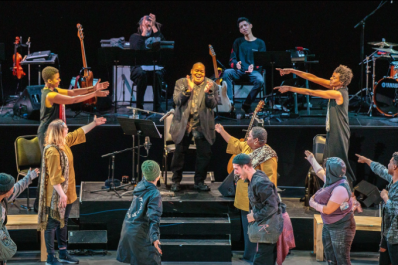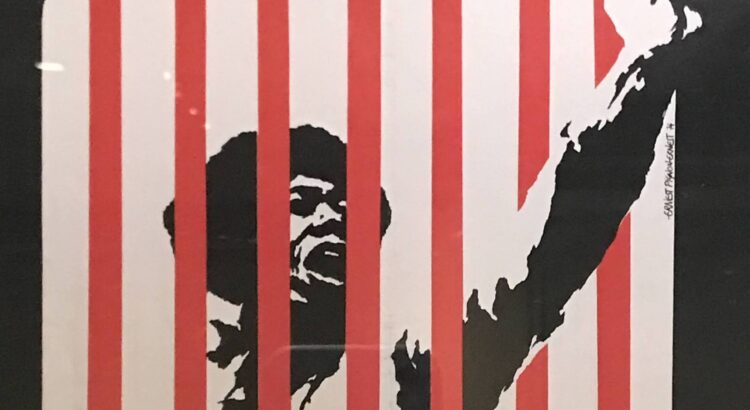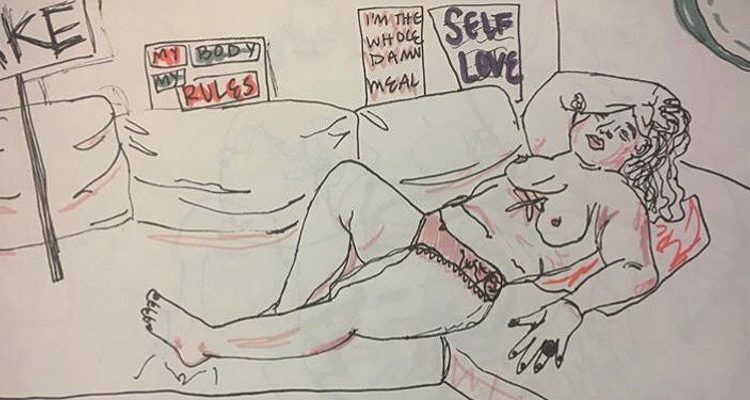
On Thursday 19 September 2014, The Michigan Theater Ann Arbor played host to two members of Russian activist group Pussy Riot. They spoke about their experience in Russian prison, their activism and some of their experiences in the US.
Nadya Tolokonnikova and Masha Alekhina have been traveling in the US this year performing and, more recently, speaking at Harvard and The University of Michigan about their new projects Zona Prava and MediaZona.
Zona Prava is an NGO aimed at providing support and human rights protection to individuals who “may be deprived of their liberty” in prisons and camps. Tolokonnikova and Alekhina spoke about the importance of education in the prison system as well as their own experience in the Russian prison system last year, which inspired them to establish this organization.
MideaZona is an independent news website aimed at countering the manipulative, censored and propagandistic flow of information released by Russian media. The website was launched on the 4th of September.
Tolokonnikova and Alekhina are well spoken and passionate about the ideals that drive their outrage and passions. They expressed their appreciation for the openness and accessibility of the American prison system, contrasted with the rigidity and complete inaccessibility in Russia.
The moderator asked about their thoughts about the overlap between activism, music and art to which they aptly responded that there is often no difference between the two. They spoke of the London graffiti scene and of course the international punk movement.
Tolokonnikova spoke about the importance of the voice of the people in a government system and how the corruption of Russian President Vladimir Putin has limited any possibility of this kind of social exchange. She did not respond to the inquiry about what kind of change she envisioned or if she was in fact an anarchist.
Tolokonnikova and Alekhina have been asked whether they would consider going into Russian politics. They replied that they are more interested in establishing grass roots, community based movements to create change instead of working through a centralized, and in the case of Russia, highly corrupt political system.
Having these two accidental celebrities come to Ann Arbor and speak about the work they have done, their experience living under a totalitarian regime, the country they live in and their continued efforts to bring about change in Russia, was very important.
Due to the history between Russia and the United States so much information has been skewed by political opinion and nationalistic pride. Although Pussy Riot is a specific, radical activist group, which is by no means representative of the greater Russian population, hearing the voices of two strong women speaking about their pride in being a Russian citizen despite all the injustices occurring in their country was very inspiring.

On the more critical side – The moderator of the discussion was disappointing. Her questions seemed uninspired and occasionally irrelevant to the experience and expertise of Tolokonnikova and Alekhina. It is also a question whether or not the message from Pussy Riot effectively translates to the United States.
Thanks to Michigan Radio, The Michigan Theater, U of M School of Art and Design, WCBN and of course Nadya Tolokonnikova and Masha Alekhina.
For more information about the Penny W. Stamp Speakers Series line up for this year click on this Link.
















